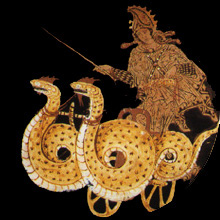
CLST 273G:
Classical Tragedy - Women and Gender Focus
Fall Semester 2017
Dr. Jacqueline Long


|
CLST 273G:
|

|
| Loyola Homepage | Classical Studies Department | Find Loyolans | Loyola Site Index |

Revised 15 August 2019 by
jlong1@luc.edu
http://www.luc.edu/classicalstudies/